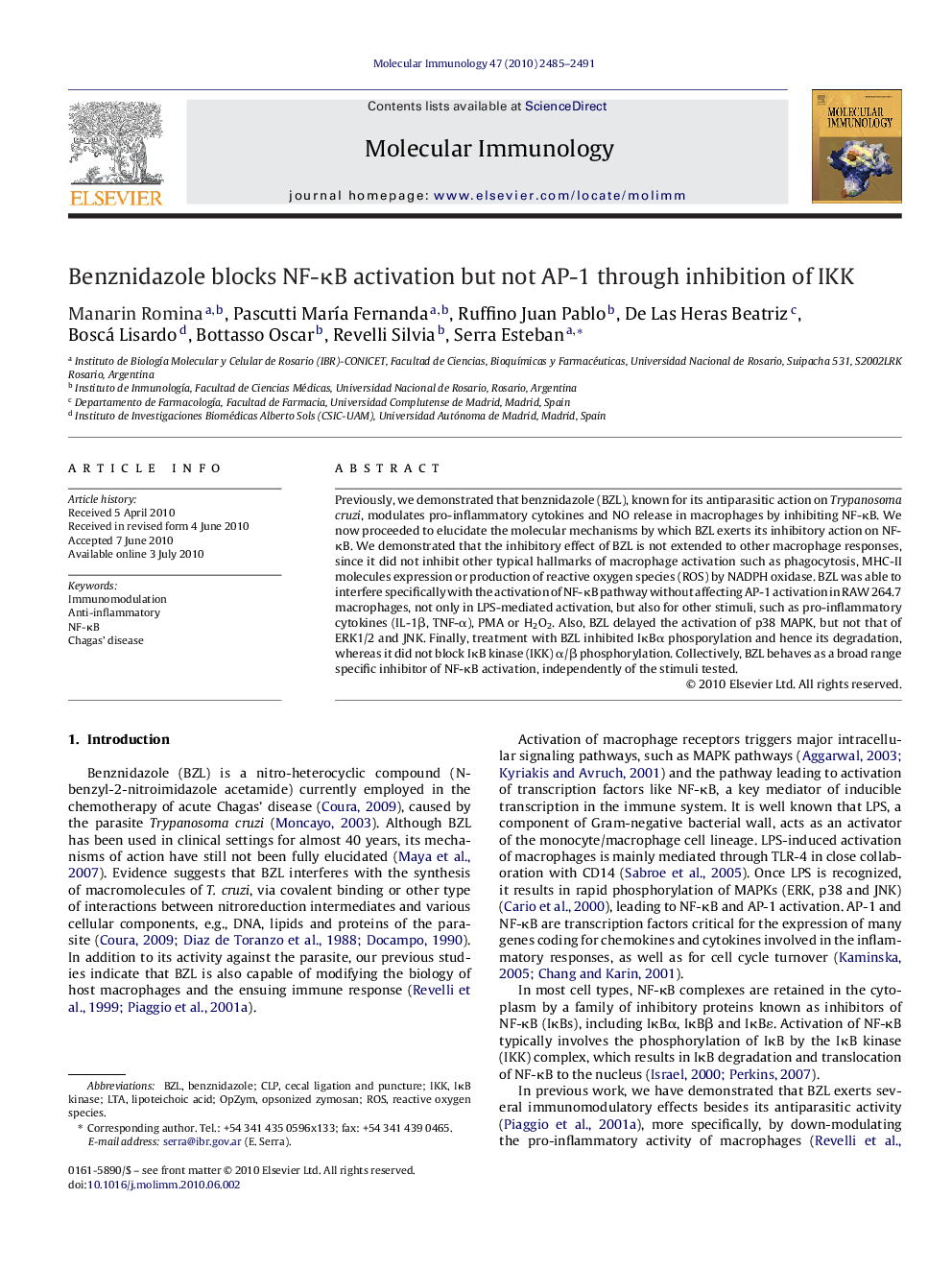| Article ID | Journal | Published Year | Pages | File Type |
|---|---|---|---|---|
| 2831426 | Molecular Immunology | 2010 | 7 Pages |
Previously, we demonstrated that benznidazole (BZL), known for its antiparasitic action on Trypanosoma cruzi, modulates pro-inflammatory cytokines and NO release in macrophages by inhibiting NF-κB. We now proceeded to elucidate the molecular mechanisms by which BZL exerts its inhibitory action on NF-κB. We demonstrated that the inhibitory effect of BZL is not extended to other macrophage responses, since it did not inhibit other typical hallmarks of macrophage activation such as phagocytosis, MHC-II molecules expression or production of reactive oxygen species (ROS) by NADPH oxidase. BZL was able to interfere specifically with the activation of NF-κB pathway without affecting AP-1 activation in RAW 264.7 macrophages, not only in LPS-mediated activation, but also for other stimuli, such as pro-inflammatory cytokines (IL-1β, TNF-α), PMA or H2O2. Also, BZL delayed the activation of p38 MAPK, but not that of ERK1/2 and JNK. Finally, treatment with BZL inhibited IκBα phosporylation and hence its degradation, whereas it did not block IκB kinase (IKK) α/β phosphorylation. Collectively, BZL behaves as a broad range specific inhibitor of NF-κB activation, independently of the stimuli tested.
